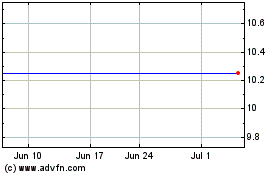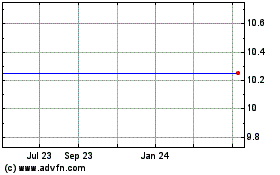By Dana Mattioli
After a turbulent year for mergers and acquisitions, some deal
makers are giddy about 2017's prospects.
M&A had a big year in 2016, despite resistance from
Washington on antitrust and other grounds, showing how strong the
urge to consolidate is after a prolonged period of sluggish growth.
With the Trump administration and a Republican-led Congress now
expected to broadly ease regulation, merger activity could get a
big additional boost, deal makers say.
There were $3.7 trillion of takeovers announced globally in
2016, according to Dealogic. While that represents a decline of
roughly 15% from 2015's record of $4.4 trillion, it still makes
2016 the third-most-active year for mergers.
In a sign the pace of activity may be quickening, October ranked
as the busiest month ever. And while there was a decline in the
number megadeals that were 2015's hallmark -- there were 28
transactions valued at $10 billion or more in 2016, compared with
44 the year before -- in the past few months, there have been some
blockbusters.
AT&T Inc. in late October agreed to buy Time Warner Inc. for
about $85 billion, in the year's largest deal. The announcement
followed by a day British American Tobacco PLC's $47 billion bid
for the stake of Reynolds American Inc. it didn't already own.
Less than a week later, chip maker Qualcomm Inc. agreed to pay
roughly $39 billion for NXP Semiconductors NV. More recently,
industrial-gas giants Praxair Inc. and Linde AG on Dec. 20 said
that they would merge in a deal that would create a company valued
at $67 billion.
"I haven't seen a set of factors that's been more bullish for
M&A activity in some time," said Peter Weinberg, a veteran
banker and co-founder of Perella Weinberg Partners, which advised
on both the AT&T-Time Warner and Praxair-Linde deals.
Mr. Weinberg says tax-law changes, together with low interest
rates and increasing CEO confidence, could push deal-making into
record territory in 2017.
Another factor bullish deal advisers are banking on is a more
accommodating antitrust apparatus. The year just past was the
biggest ever in terms of the volume of collapsed deals, with more
than half a trillion dollars of previously announced tie-ups
withdrawn. While not all of them dissolved because of antitrust
issues, deal makers generally view the Obama administration as
tough on takeovers.
Among the deals that fell apart because of government scrutiny
was Pfizer Inc.'s roughly $150 billion proposed deal for drugmaker
Allergan PLC, which ranked as the largest announced union in 2015.
It broke apart after the Treasury Department imposed stricter rules
on so-called tax inversions -- deals that move the acquiring
company abroad to save on taxes -- which helped drive the merger
boom in 2015.
Also in 2016, oilfield-service giant Halliburton Co.'s roughly
$35 billion proposed combination with Baker Hughes Inc. had to be
abandoned because of antitrust pressure, as did Office Depot Inc.'s
bid to merge with Staples Inc.
There is no guarantee the new administration will go easier on
merger plans, and indeed Donald Trump on the campaign trail took
aim at the proposed AT&T-Time Warner combination. What's more,
job cuts are often a big part of the rationale for a merger and Mr.
Trump has already shown a strong inclination to push back against
moves by companies that reduce employment in the U.S.
And even if the government doesn't stand in the way, other
factors could -- like a sharper-than-expected rise in interest
rates, which would increase the cost of funding deals. A pickup in
growth could also take away one major catalyst for deal-making, and
give companies more of an incentive to invest in their businesses
instead, but mergers have historically increased with economic
growth.
One driver of merger activity in 2016 thrown into doubt by the
election is China: Companies there struck $67 billion worth of U.S.
takeovers in 2016, nearly five times the prior high in 2014,
according to Dealogic. Given indications Mr. Trump may take a
confrontational approach toward China, deal makers say that
activity could slow.
Even without such pressure, China may itself put on the brakes
as the government is expected to impose tighter controls on
overseas investments.
"We suspect we will see more scrutiny of certain acquisitions of
U.S. companies by non-U.S. companies, particularly where security
concerns are implicated or U.S. jobs eliminated or expatriated,"
said Greg Weinberger, co-head of global M&A at Credit Suisse
Group AG. Mr. Weinberger advised Enbridge Inc. on its $28 billion
deal to buy Spectra Energy Corp. in 2016, and Credit Suisse served
as sole banking adviser to Praxair on its deal with Linde.
But other changes are expected to more than make up for any such
dampers.
An expected decline in corporate taxes -- including what it
costs to repatriate the mountains of cash U.S. companies hold
abroad -- is expected to help give chief executives the confidence
to strike deals. The last time there was a so-called tax holiday
enabling companies to bring back cash from abroad at a lower rate,
in 2005, deal volume involving U.S. acquirers surged 34%, according
to Dealogic.
"There is no question that a tax holiday will be a stimulus to
M&A," said Kurt Simon, global chairman of M&A at J.P.
Morgan Chase & Co., who advised on deals including Yahoo Inc.'s
pending sale to Verizon Communications Inc.
Clients are already starting to earmark some of the cash they
expect to bring back for M&A, bankers say. In a sign of the
changing times, deal lawyers say they are even fielding queries
from clients who had moved overseas through inversions about how to
potentially come back to the U.S. if tax rates become more
competitive here.
Write to Dana Mattioli at dana.mattioli@wsj.com
(END) Dow Jones Newswires
January 03, 2017 02:48 ET (07:48 GMT)
Copyright (c) 2017 Dow Jones & Company, Inc.
Staples, Inc. (NASDAQ:SPLS)
Historical Stock Chart
From Mar 2024 to Apr 2024

Staples, Inc. (NASDAQ:SPLS)
Historical Stock Chart
From Apr 2023 to Apr 2024
